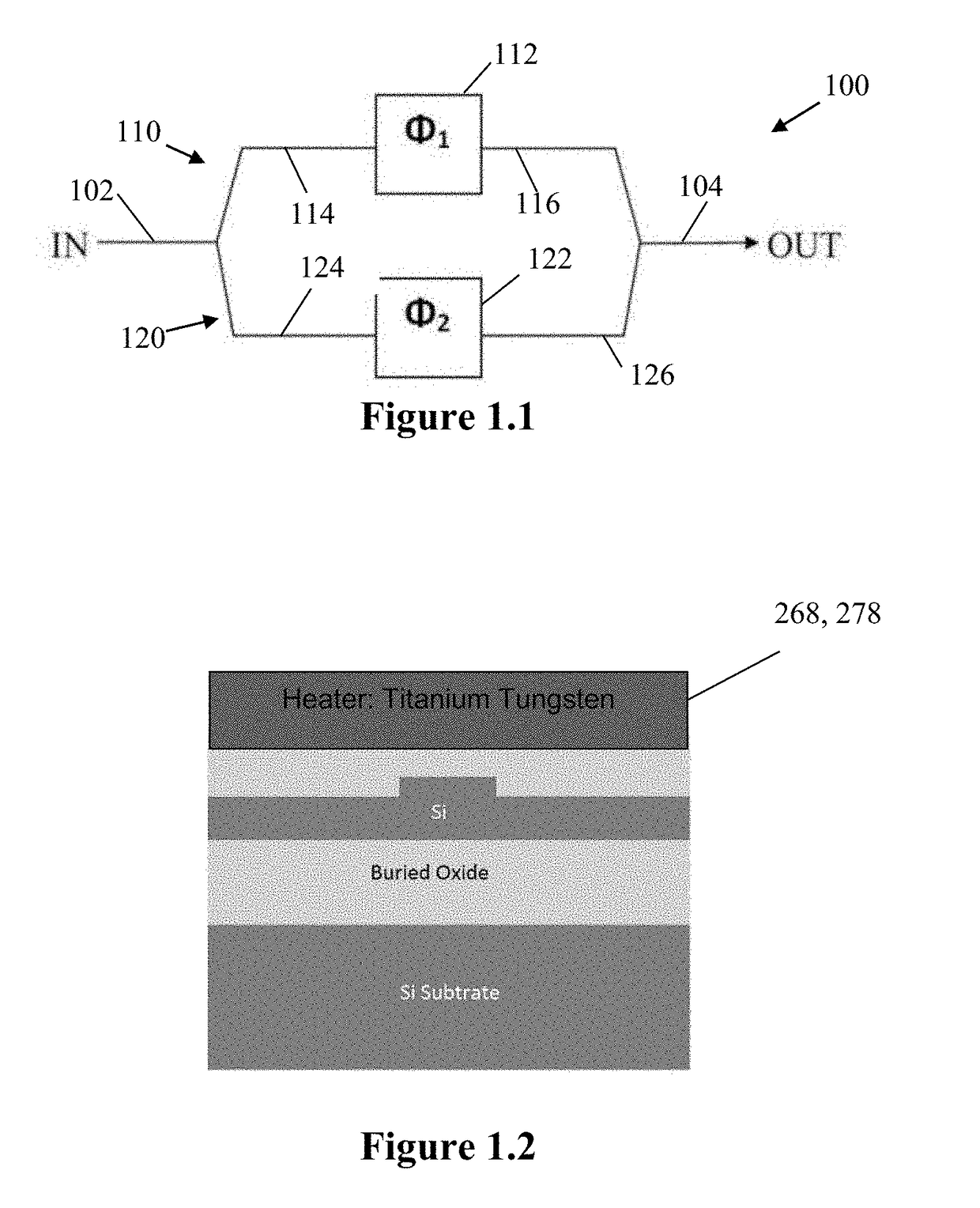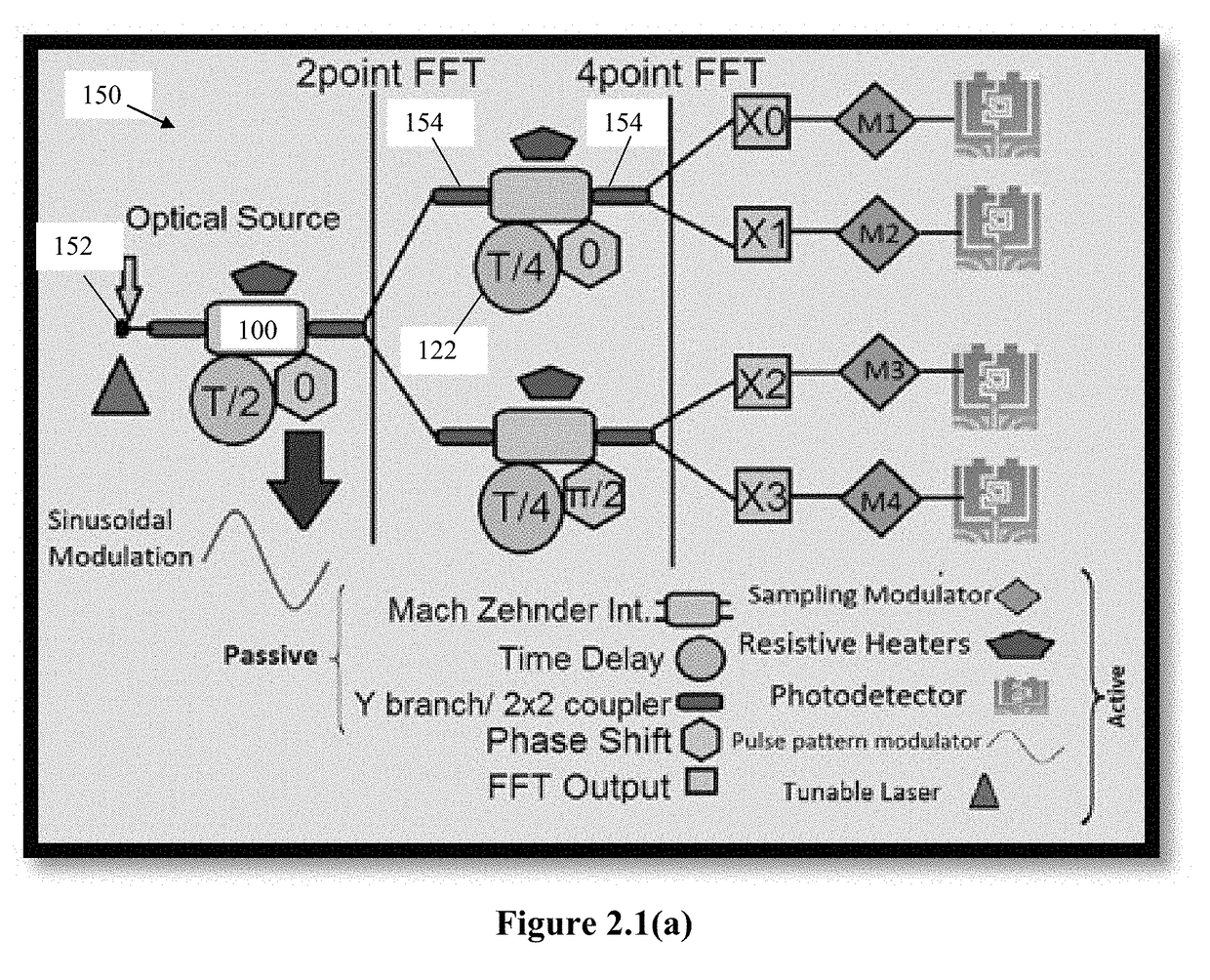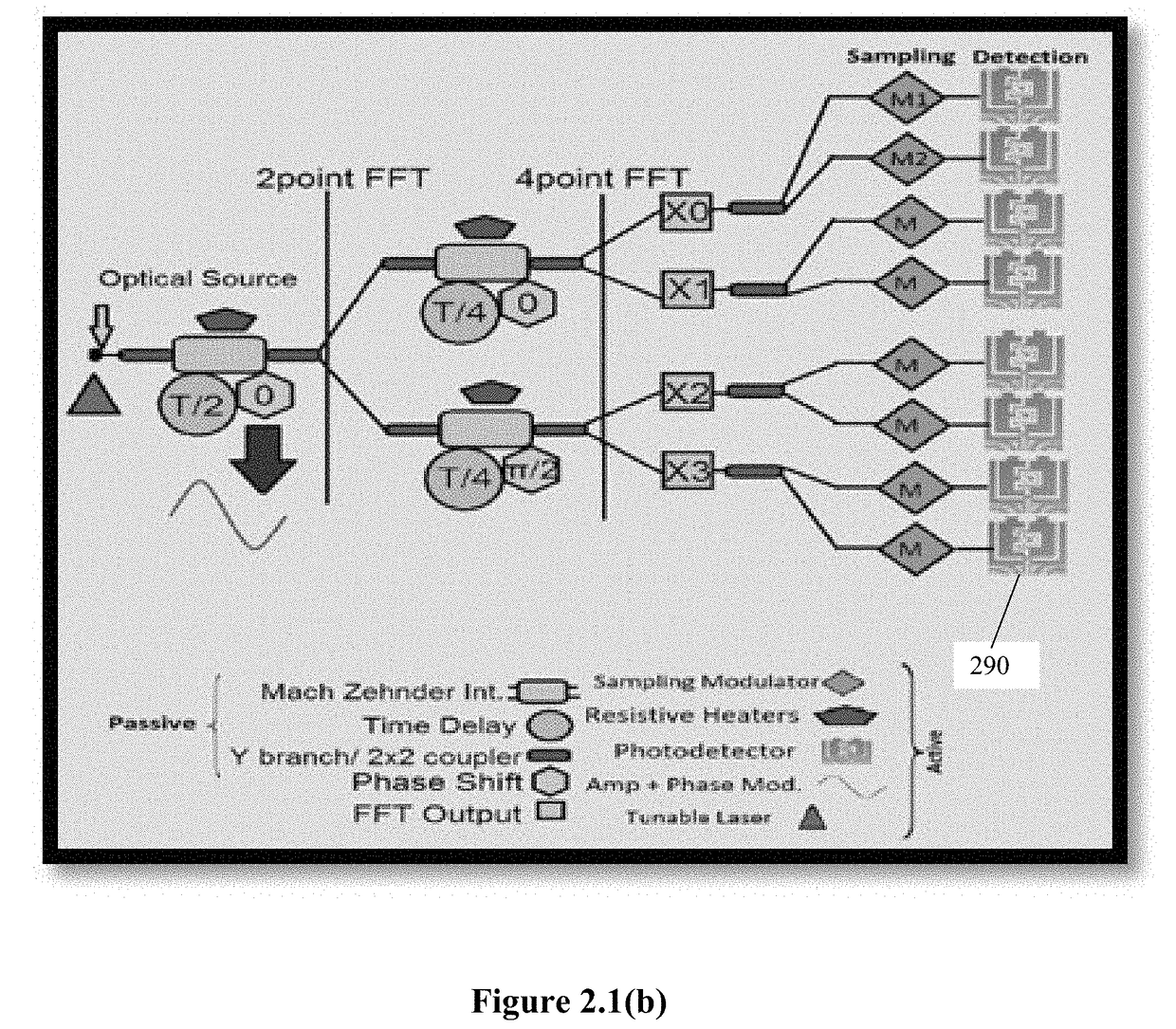All optical fast fourier transform on chip with heating tunability design, simulation, fabrication, and performance analysis
a technology of fourier transform and heating tunability, applied in the field of optical fast fourier transform (offt) on chip design, to achieve the effect of simplifying circuit complexity, maximizing data rate per operation, and minimizing footprint and energy of such operations
- Summary
- Abstract
- Description
- Claims
- Application Information
AI Technical Summary
Benefits of technology
Problems solved by technology
Method used
Image
Examples
Embodiment Construction
[0039]In describing the illustrative, non-limiting preferred embodiments of the invention illustrated in the drawings, specific terminology will be resorted to for the sake of clarity. However, the invention is not intended to be limited to the specific terms so selected, and it is to be understood that each specific term includes all technical equivalents that operate in similar manner to accomplish a similar purpose. Several preferred embodiments of the invention are described for illustrative purposes, it being understood that the invention may be embodied in other forms not specifically shown in the drawings.
The Optical FFT (OFFT) Design
[0040]One of the earliest uses for optics in computing was frequency domain filtering with Fourier Optics. In these systems, a lens is used to convert an image into the frequency domain where filtering can occur with the result being converted back into the spatial domain with a second lens. Even though such systems are highly parallel, they are ...
PUM
 Login to View More
Login to View More Abstract
Description
Claims
Application Information
 Login to View More
Login to View More - R&D
- Intellectual Property
- Life Sciences
- Materials
- Tech Scout
- Unparalleled Data Quality
- Higher Quality Content
- 60% Fewer Hallucinations
Browse by: Latest US Patents, China's latest patents, Technical Efficacy Thesaurus, Application Domain, Technology Topic, Popular Technical Reports.
© 2025 PatSnap. All rights reserved.Legal|Privacy policy|Modern Slavery Act Transparency Statement|Sitemap|About US| Contact US: help@patsnap.com



